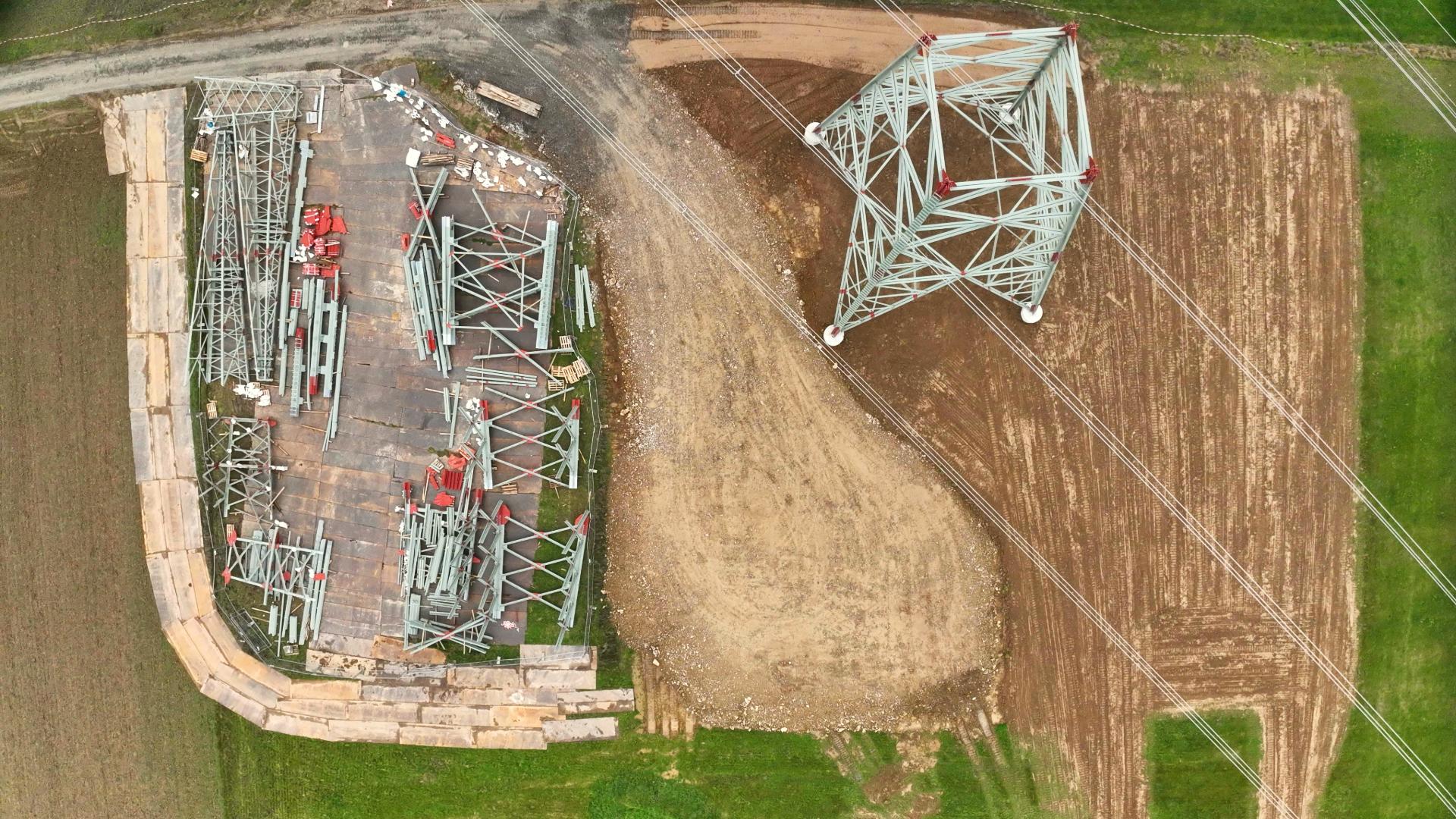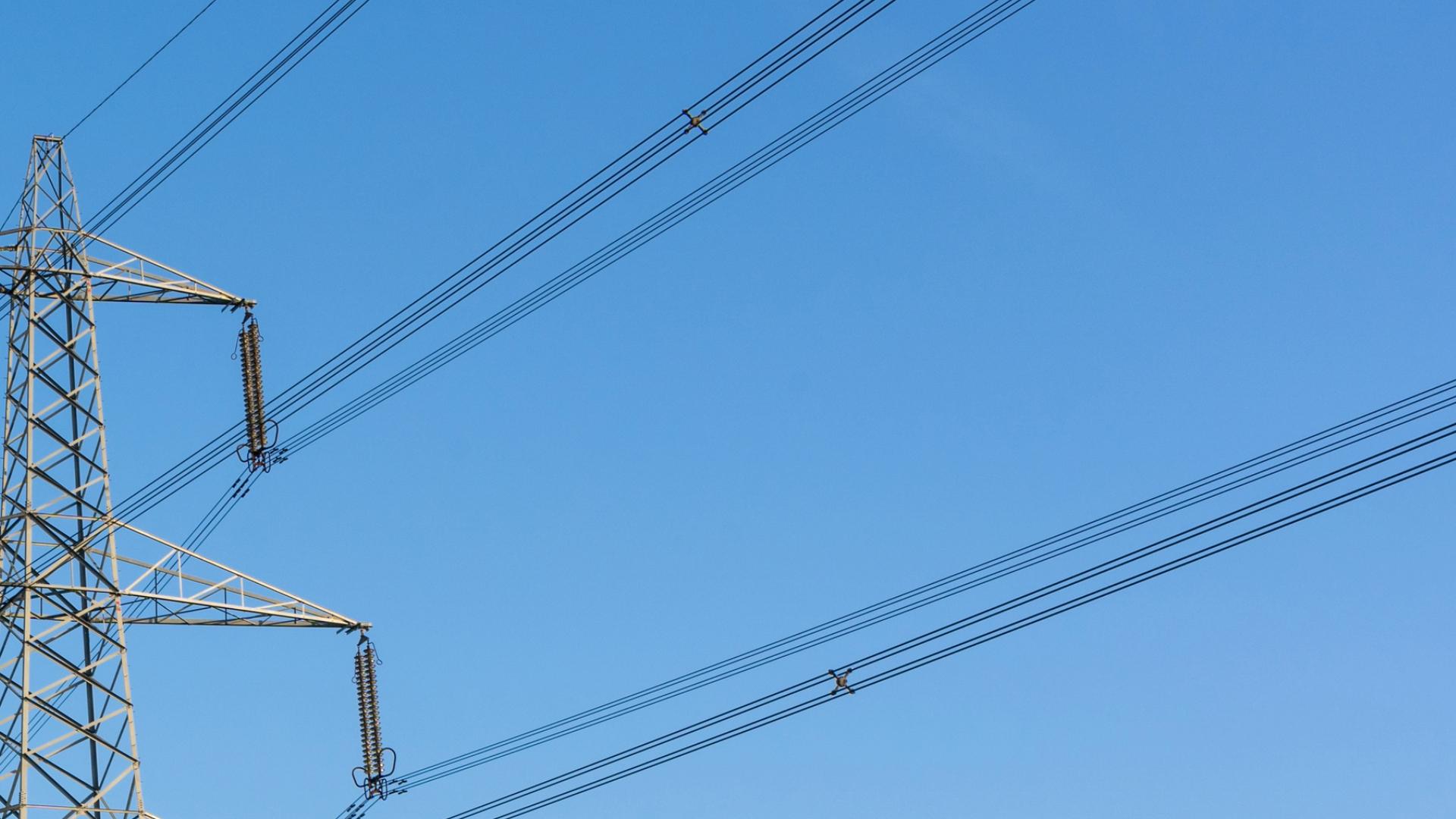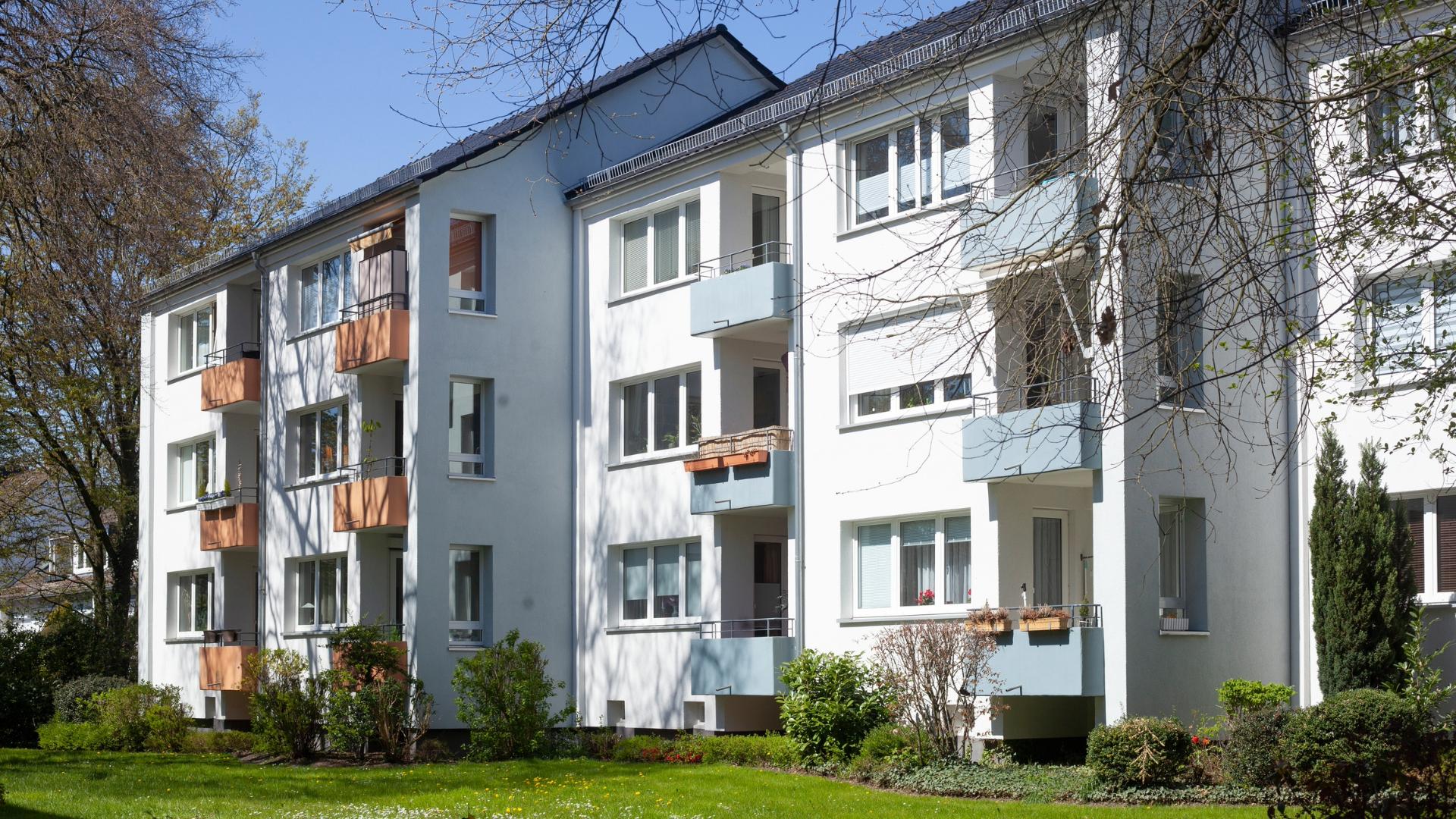Last week, Part 1 of our blog series on penalties for drone pilots was published. It was about flying without a license and permission.
In the second part, we will talk about the basic rules that apply to the aircraft and what happens if you don’t follow them. In concrete terms, this means: What do I have to consider before I take off with my drone for the first time?
This is similar, for example, to the purchase of a new car: In Germany, every drone operator is required by law to take out insurance for the drone. Also, you must register your drone and provide it with a license plate number so that the drone can be assigned to the owner if necessary.
Accidents with drones happen more often than thought
When you fly your drone, you have the same responsibility as driving a car to pay attention to your surroundings and other people. However, it can still happen that your drone crashes and, for example, damages a building or, in the worst case, injures a person. For example, in 2017, an accident occurred near Munich because a drone pilot lost control of his aircraft, and it collided with a passenger car on the highway. Fortunately, the occupants were uninjured. However, the story could have ended differently. Even if the drone pilot was not at fault, he is liable as an operator. As a drone pilot and operator, you should therefore know that in such cases, your private liability does not apply unless it includes additional coverage for drones.
In the following, we explain what you have to consider concerning insurance and labeling of drones and what you will face in case of violations.
Flying without Insurance
According to § 43 LuftVG (German Air Traffic Act), drone operators are obliged to take out liability insurance to cover their liability to third parties in the event of damage. This applies to all weight classes, including drones < 250 grams. If you have no insurance for your drone, you can be punished with a fine of up to €50,000, regardless of whether there is a case of damage. There are exceptions only if the operator is the federal government.
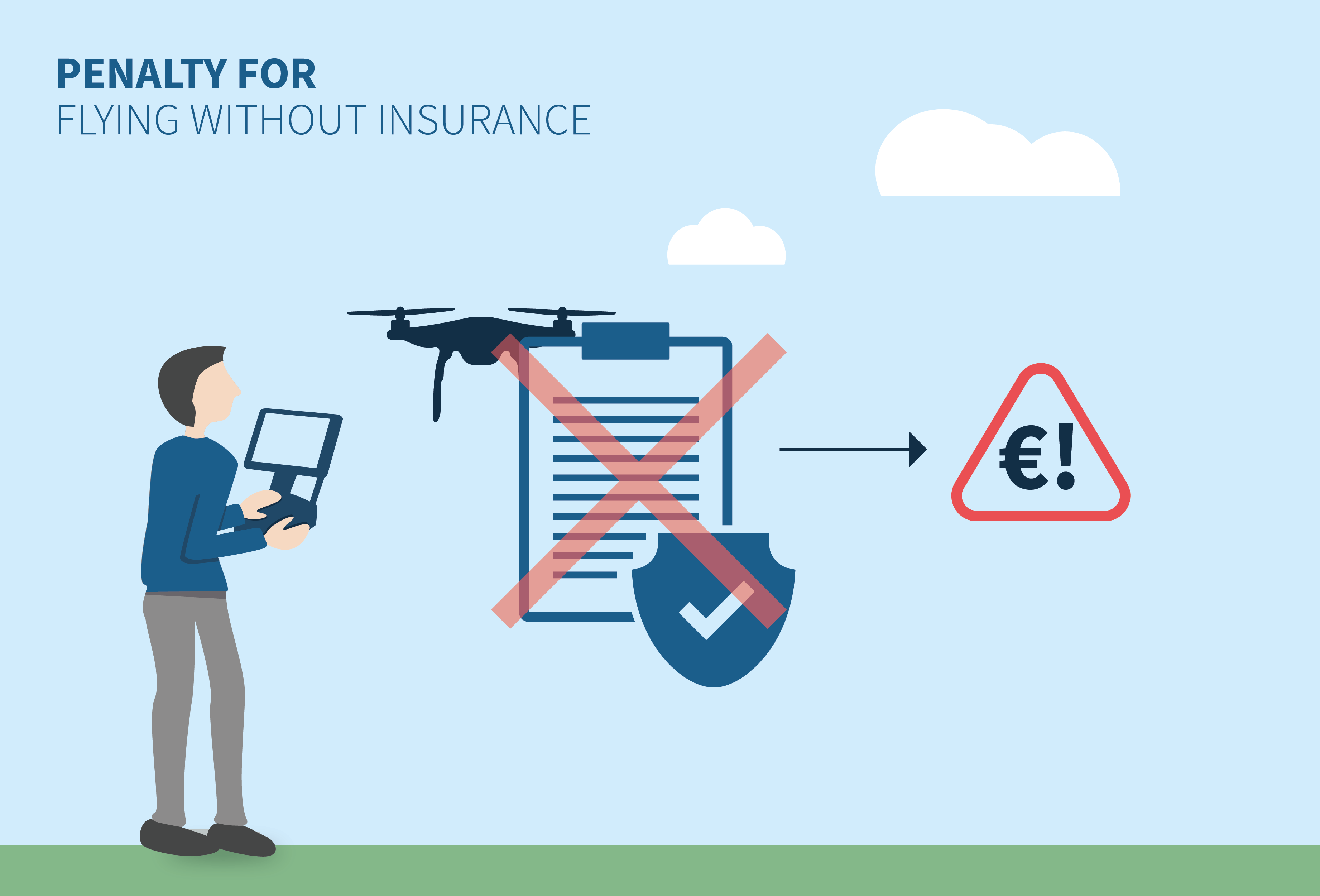
Drones can either be insured within your own private liability or by special drone insurance. The latter makes sense especially for commercial use, as they usually also cover their employees. Drone insurances start at about €80/year. In any case, make sure you have a sufficiently high coverage amount.
Flying without label
With the new EU Drone Regulation 2021, there is now an obligation to register as a pilot or operator of a UAS. You will receive a UAS operator number (e-ID) after registering, which must be visibly attached to the drone as a label. The name and address no longer have to be part of the label, as was previously the case.
The registration is done only once and refers exclusively to the person. Subsequently, you must affix the e-ID to all your drones that are required to be marked.
A missing label will be punished with heavy fines. Flying without it is only allowed if the drone’s takeoff weight is less than 250 grams and/or is labeled as a toy. In turn, if the drone carries a camera, labeling is always mandatory.
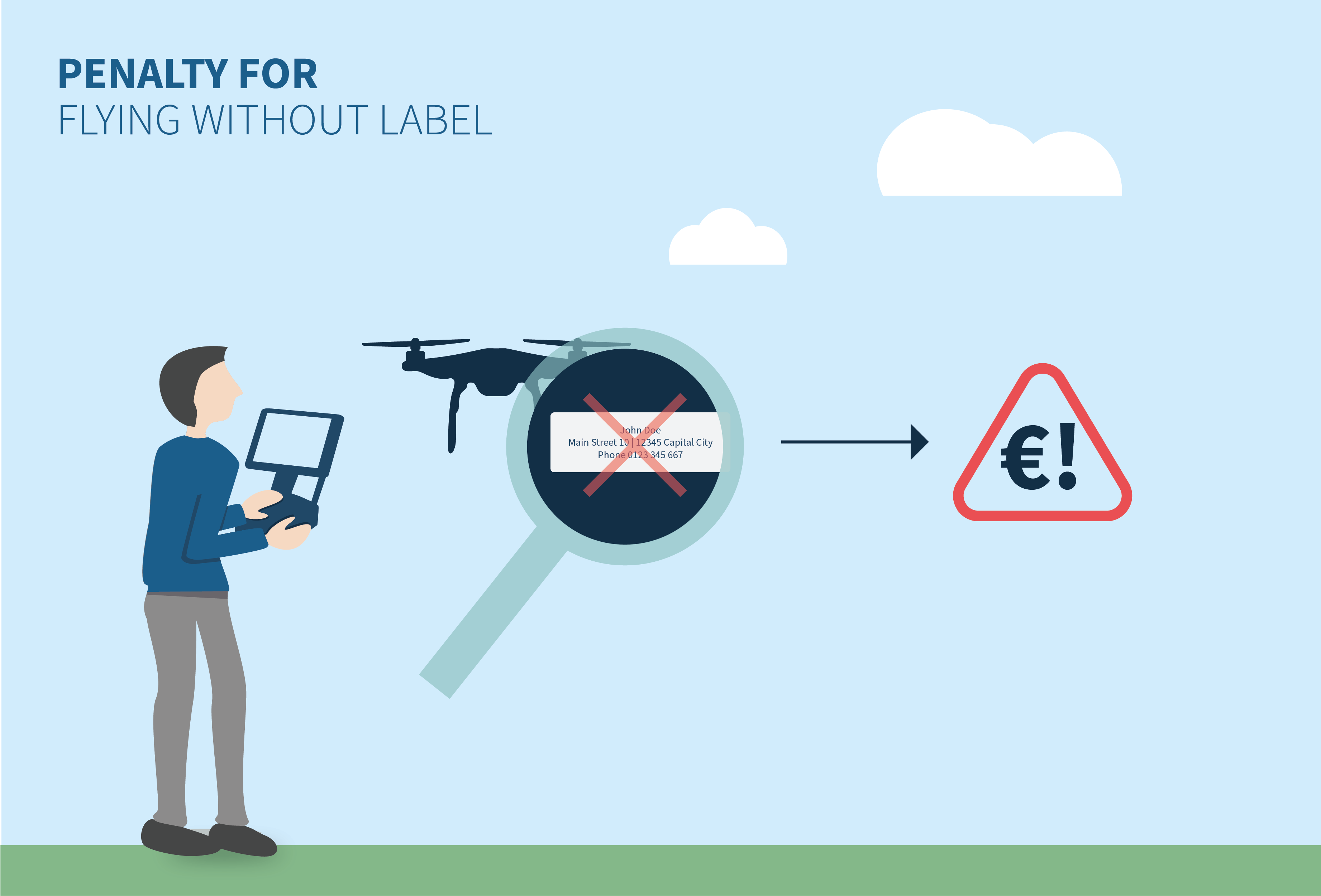
When you register as a pilot or operator, you automatically receive an identification number (e-ID) for your device. Registrations are possible here at the Luftfahrt-Bundesamt. Some providers specialize in drone license plates. Here you can receive badges that meet the requirements (e.g., fireproof, self-adhesive, etc.).
Part 3 of our blog series “Avoiding penalties – Important for drone pilots” on flying in prohibited zones and over private areas will be published next week.
We wish you accident-free flights,
Your FlyNex Team
